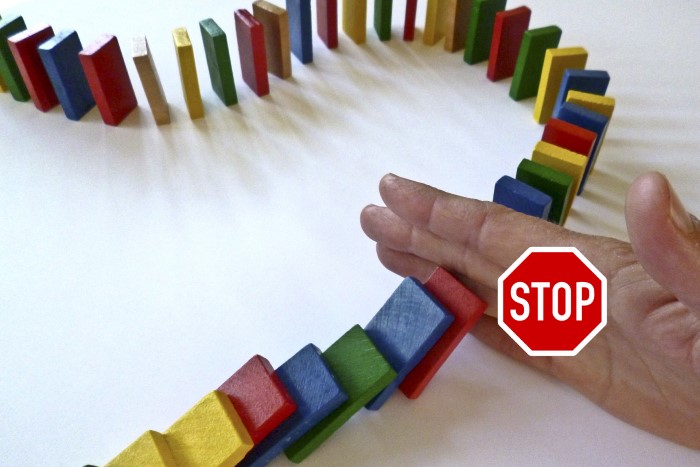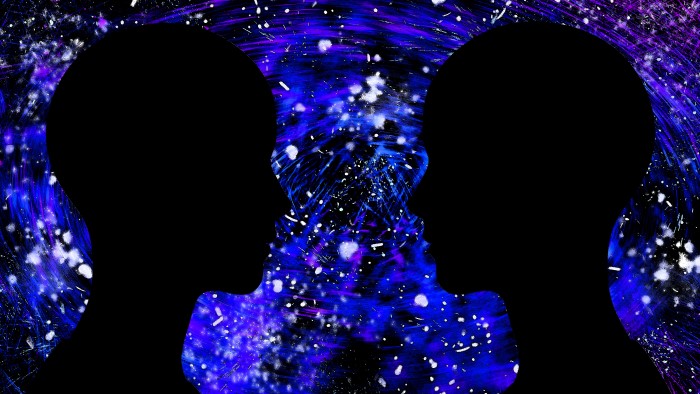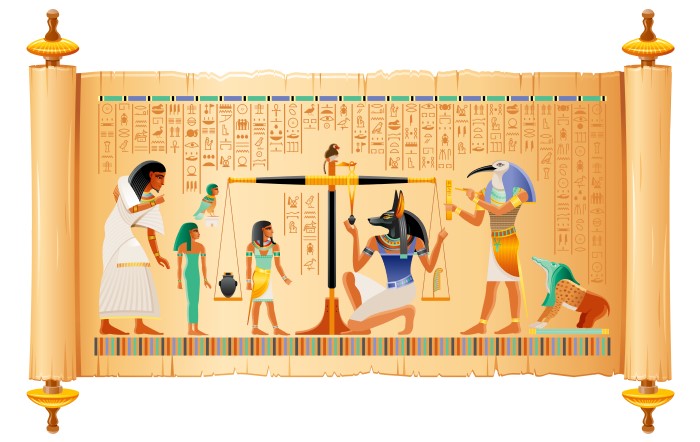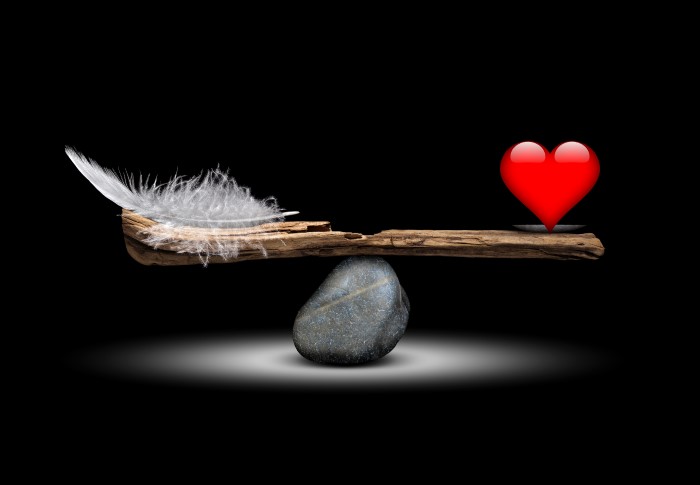The web of interpersonal relationships is itself a school of life. Every partnership teaches us all something valuable. Our encounters with other people shape who we are today, sometimes in painful and other times in joyful ways. Our internal harmony and balance determine the quality of our human relationships. We can save a tremendous amount of life energy that would otherwise be used for pointless drama when we learn the art of relationships. Being a master of relationships is equivalent to being a monk who can become holy without renunciation.
Internal Feelings have an Impact on How We Respond to Other People
Humans frequently accuse other people of causing their problems. Some people simply think it; others only say it. We frequently get stuck in a cycle of miscommunication, which can range from gossip to outright conflict, from sarcasm to censoring an opinion. If the preceding paragraphs struck you as being overly philosophical, let me assure you that I am the most pragmatic person you have ever met. I’m here to look for answers. So let’s analyze the issue, comprehend it, and come up with solutions.
A higher level of self-awareness is the only way to break the exaggerated never-ending cycle of the blame game. We can’t complete the lesson until we realize that every other person in our lives is merely a reflection of us, a facet of the universe.
Someone disappointed us; thus, we feel terrible. But if our emotions were in balance, would we still feel the same? Although we would like the trigger (individual) to vanish, we are powerless to do so. Self-control is the only aspect of reality we can influence.
End the Domino Effect
I learned about this idea for the first time while working in the corporate world. Your ability to handle emotions must evolve as you move up the leadership ladder. When your boss gives you the slack, you have the choice of acting as a professional buffer or giving the slack to your team right away. A true leader is able to weed out the unneeded information and only communicate what is required to his team members. Dealing with an asshole shouldn’t make you one to others. The same concept applies to all our other relationships.

Human Interactions Model
Energy is exchanged in every relationship. The truth is that we are all connected to a web-like network of planetary energy.
We mistakenly think that other people have an impact on us, yet this is a significant misconception that, if addressed, might assist in our own problem-solving.
Instead of occurring directly between us and other people, all energy exchange takes place between us and the universe.

This is a useful perspective to take since it enables us to handle every dramatic situation on our own. Since we are the only ones responsible, it puts an end to the blame game.
Compassion’s Role in Resolving Conflicts and Disagreements
It has been instilled into us that having empathy for others makes us better people. However, if compassion is used as a means of displaying our virtue to the outside world, it can have negative effects. To feel the ego flying around, just look at some of the charity events.
While a genuine act of kindness might alter energy, if it is performed from an egocentric viewpoint, nothing is gained. The best deeds of goodwill are those that go unseen.
Self-compassion is frequently regarded selfishness, but it is vital to the self-healing process.
Why do we show someone compassion when the relationship is unsatisfying and results in unwanted and unneeded emotions?
Fool me once shame on you, fool me twice shame on me! In other words, emotional balance (neutrality) is the ultimate goal.
Why do We Let Some People into Our Lives?
I get this question a lot.
Perhaps we should answer with another question: “Why don’t we get rid of some people from our existing lives, especially the ones who make our life miserable?”
Some of life’s most challenging lessons are imparted by parents, kids, or spouses—people we can’t usually break away from. Therefore, the lesson must be learned.
Each individual carries a message, a lesson, or a trigger.
Imagine I advise you to discharge your child or your parents. Or leave a toxic spouse or partner.
“But this goes against everything I believe! Family is paramount! It is more important than anything else.” – most people would answer.
Karmic connections span multiple lifetimes. Sometimes we can’t easily obtain the answers. We must make use of the beliefs and values we already possess.
People are often judged and valued not for who they are, but rather by how they compare to others or to our ideal version of them. Learning to say no is one way to avoid making the same mistakes in relationships. There is nothing wrong with rejecting an undesirable pattern.
We’ll be publishing another post soon to explain how understanding our former incarnations might help us in the present.
What We Learned from Egyptian Mythology
True self-awareness masters don’t restrict their knowledge to a single source. The most unexpected places hold the universe’s secrets. Let’s read the text below and seek for wisdom in the tale that the Egyptian pyramids depict!
The journey to the afterworld was considered full of danger. The soul was travelling through the underworld, which was inhabited by serpents, fire-spitting dragons and poisonous reptiles. Upon arriving in the land of Gods, the deceased had to pass through seven gates. If successful, they arrived at the Hall of Osiris, the place of judgement. Here the gods of the dead performed the “weighing of the heart” ceremony to judge whether the person’s earthly deeds were virtuous. The weighing of the heart was overseen by Anubis, and the judgement was recorded by Thoth.

The person’s heart was then placed on a scale, counterbalanced by a feather that represented Maat, the goddess of truth and justice. If the heart was equal in weight to the feather, the person was justified and achieved immortality. If not, it meant that the person would not survive in the afterlife.
Light as a Feather
Every situation we experience will add weight on our heart. We tend to forget about it after a certain time, but the body, and specifically the heart keeps tracing the emotions. It’s a game of balance. We get upset, we immerse in some feelings, the heart is balancing them out eventually. When the situation has passed, we forget and we start a new day. Transferring the memories and affiliated feelings to a part of subconscious mind is a survival mechanism that allows us to start every day fresh.
The real mastery is to prevent the heart from getting heavier as we get older.

The heart is revered as the master of all organs in Traditional Chinese Medicine. It is the organ in charge of balancing out all other negative feelings. The final resort to acquire peace is joy. Joy is a tool for fighting negativity.
The Ki Train Method provides realistic approaches to handling interpersonal relationships. We practice on letting go of emotional baggage and freeing the heart.
Hardness is overcome by softness. If you’re interested in learning more, you may purchase the book or enroll in our 30-day transformation program, where we’ll help you deal easier with your emotions.
Inner Smile Practice
Although this meditation can be done at any time of the day, I find that it works best just after an energetic exercise like Ba Gua, Tai Chi, or Qi Gong. Anyone who can maintain attention for a short period of time can use this fundamental technique.
“Smile and close your eyes. Feel the positive energy a smile brings to your face. Utilize all of your senses—your eyes, nose, mouth, ears, and face—to absorb this energy. While smiling, let all the fascial muscles unwind. Feel the energy pouring down your neck, thyroid, thymus gland, and heart as you smile downward. Put your heart in a loving, joyful mood. It may be helpful to recall a happy memory from the past, but it is not compulsory.
Become aware of each major organ as you smile down to them. Smile to the lungs. Smile to the liver. Smile to the spleen. Smile to the kidneys. Feel the positive effect on each organ as you smile to it.
Smile down to the digestive system.
As you swallow your own saliva, feel the energy move all the way down to your stomach, small intestine, and large intestine.
Return to the eyes, smile in to the pituitary and pineal glands. Smile into the left and right sides of your brain.
Smile down the spinal cord. Smile into your sexual organs.
Return to your eyes and smile down into your heart again.
To continue your day in peace, stay there for a short while before opening your eyes.”
The aforementioned cultivation exercise is supposed to get us ready for the moment when we measure our heart against a feather. We hope you live a good life and that you will always be able to ease your heart.
